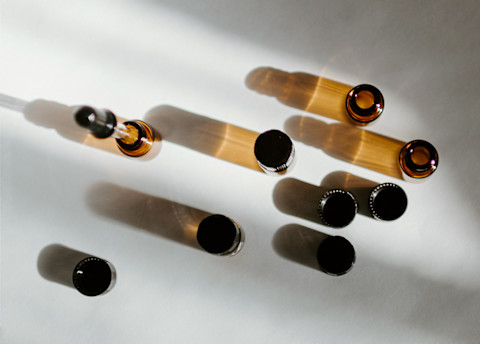
The essence of bioactivity.
Bioactive compounds have the ability to communicate with your body's tissues on a cellular level, affecting the metabolic processes that keep it running like a well-oiled machine.
Scientists refer to bioactive compounds as "extra-nutritional," meaning they contain no calories (as protein, fat, and carbohydrates do), and they are not vitamins or minerals. Nor, as we just discussed, are they considered essential nutrients. But this does not make them any less significant healthwise. Without bioactive compounds in your meals, you could still be alive but would be one sick puppy!

Bioactive components occur in small amounts in foods, but their effects can have a large impact. Numerous epidemiologic studies have shown that a plant-based diet rich in bioactive nutrients can help prevent cardiovascular disease and cancer. (Epidemiology is a field of medicine that studies the incidence of disease in certain populations.)
In addition to flavonoids and carotenoids, bioactive compounds include phytoestrogens (plant estrogens) found in flaxseed oil. Several compounds act as antioxidants, including resveratrol, present in nuts and red wine, and lycopene, found in tomatoes. Bioactive compounds in onions, scallions, leeks, garlic, cruciferous vegetables such as cabbage and cauliflower, many citrus fruits, cherries, and herbs also appear to protect against cancer and heart disease.
The next big thing in the food industry?
Although the word bioactive may be still under the radar for most people, its significance is not lost on food manufacturers. You can bet that scientists in their employ are already figuring out how to use carotenoids, essential oils, antioxidants, and other bioactive compounds in new packaged foods made with added flavors "in order to enhance their sensory properties or to develop their nutritional and health properties." Ditto for supplement makers eager to jump on the bioactive-compounds bandwagon. This means the next great marketing term following natural—which is meaningless—organic, non-GMO, and gluten-free may well be bioactive!
Rather than spending your hard-earned dollars on supplements containing these compounds, your new way of eating organically grown, non-GMO fruits, vegetables, ancient whole grains (oatmeal, quinoa, millet, brown rice, spelt, amaranth, sorghum, and teff), legumes, healthy fats, and nuts will offer the countless health benefits found in bioactive-rich foods.
The bioactive compounds known as essential oils.

Millions of people already use essential oils for health, well-being, and relaxation. You may be among them, particularly if you have already read Eric's first book, The Healing Power of Essential Oils. Essential oils are inherently bioactive, but unlike bioactive-rich foods, essential oils are not a source of nutrition. For example, both the fruit of the lemon and lemon essential oil (extracted from the rind) contain bioactive compounds, but the latter doesn't provide any energy in the form of calories, vitamins, or minerals. However, together they become far more than the sum of their parts.
While foods supply energy in the form of calories, and many contain small amounts of bioactive compounds, essential oils offer a more concentrated form of bioactivity. In fact, they symbolize the essence of bioactivity—minute but highly concentrated compounds able to heal body (and soul) with metabolic effects that can assist in weight loss—or weight gain if that is your concern. Certain oils can also boost your energy level, so you can be more active and burn more body fat.
The Essential Oils Diet by Eric Zielinski, D.C., and Sabrina Ann Zielinski is available now.
